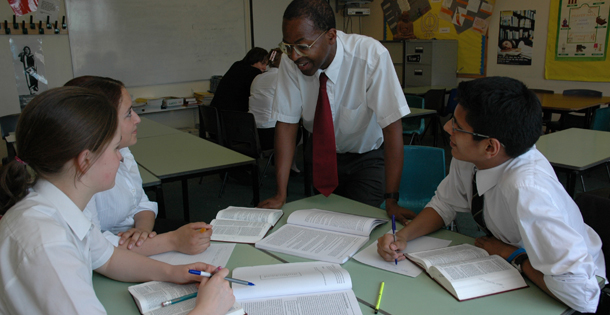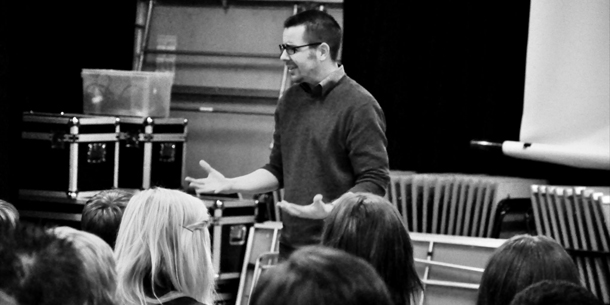Topic:
Christmas
Aim
To show that Christmas is about discovering more than the birth of a baby.
Things you’ll need
- 3 shoe boxes with lids
- Christmas wrapping paper
- 3 gift tags
- 3 presents that no one would ever want! (Eg a brick, some rubbish from the bin, an empty perfume or after-shave bottle)
- Sellotape
- Lots of money (notes only)
- A flipchart and a pen (for the ‘Response’ time)
- A Christmas wrapped box containing enough sweets for all the children in the assembly (only for the Key Stage 1 option)
Preparation
1 Wrap the boxes and the lids separately with the Christmas wrapping paper. For each box, hide some of the money between the wrapping paper and the box. The paper has to be removed during your presentation, so don’t tape the edges down too well.
2 Once you’ve wrapped the boxes, place a ‘present’ into each one and write the name of the person who will receive it onto the gift tag. Choose three adults who will be at the assembly to receive the presents, to avoid upsetting children.
Bible Base
John 3:16a
Content
1 Talk to the children about Christmas – the story of the birth of Jesus which is celebrated all over the world by millions of people.
- Ask some questions to make them think about Christmas being celebrated all over the world (eg do they know which parts of the world will be hot/cold at Christmas?)
- Ask if they know where we can read the story.
- Explain that we give presents to each other at Christmas in the same way that the Wise Men gave their presents to Mary and Joseph for their son, Jesus. Ask if the children can remember what the gifts were.
2 Tell the children that you have gifts for three people. They are for…surprise, surprise… Read out the names on the gift tags. You could ask three children to deliver the gifts to the appropriate adults.
3 When the three people have received their presents, ask each one in turn to open them and show everyone what they have been given. Ask each person what they think of their ‘gift’! Ask them to give their honest reactions (eg ‘Rubbish!’ ‘Disgusting!’ etc). It shouldn’t take too much persuasion to encourage them to give you back your presents (and the boxes). When they do, act as if you are really disappointed about having your gifts rejected.
4 Once all the gifts have been returned to you, let the children see you smiling as if you know something that they don’t! Then choose one of the boxes and show everyone the present (eg the brick). Put it to one side and then pull out the money which is hidden in the box and lid. As you are doing this talk to the children about how X (the name of the person who received the gift) was so busy looking at what she thought was the gift, that she managed to miss the greater present. It was there for her and she would have found it if she had only looked a bit harder. Show the money. Ask the adults who were given the gifts how they feel about their loss!
Application
A Christian viewpoint
1 Read the first part of John 3:16 from the Good News Bible:
God loved the world so much, that he gave his only Son…
Explain that the Bible teaches that this is what the Christmas story is all about. Christians believe that God gave the greatest present ever – his own son, born as a baby in Bethlehem, born so that people could be friends with God.
2 Say that today…(name your adult helpers)…looked at the presents they were given and decided to reject them. We all know what they missed out now on don’t we? Explain that the Bible teaches that God gave the gift of his Son Jesus at Christmas. Some people say ‘Thank you’ to God for his gift. Some people say ‘No thanks’. And some people are still thinking about it.
For everyone
For those who believe the Bible’s teaching about Jesus, Christmas is one of the most important times of the year. Those who don’t believe, or who are not sure, can still enjoy the presents, the parties and all the good things of Christmas and in school we can all enjoy the celebrations together.
Response
1 Ask the children what things we can enjoy together about Christmas. Using the flipchart, write down their ideas and then use them as a focus for their thoughts or prayers.
2 Allow about fifteen seconds of silence to think – or talk to God – about what has been written.
Key Stage 1 option
1 Instead of the surprise ‘horrible’ present, give a member of the staff a Christmas-wrapped box which contains enough sweets for all the children (could be expensive!).
2 Ask the children whether the person receiving the gift said ‘Thank you’. Point out that they don’t know what the gift is. It could be something really horrible. Let the member of staff open the box. Then ask him/her to show the children what the gift is, explain who it is for and when they will be allowed to eat the sweets!
3 Talk about the gift God gave at Christmas and what different responses people might make to it. (Then continue as above in the ‘Application’ section.)


